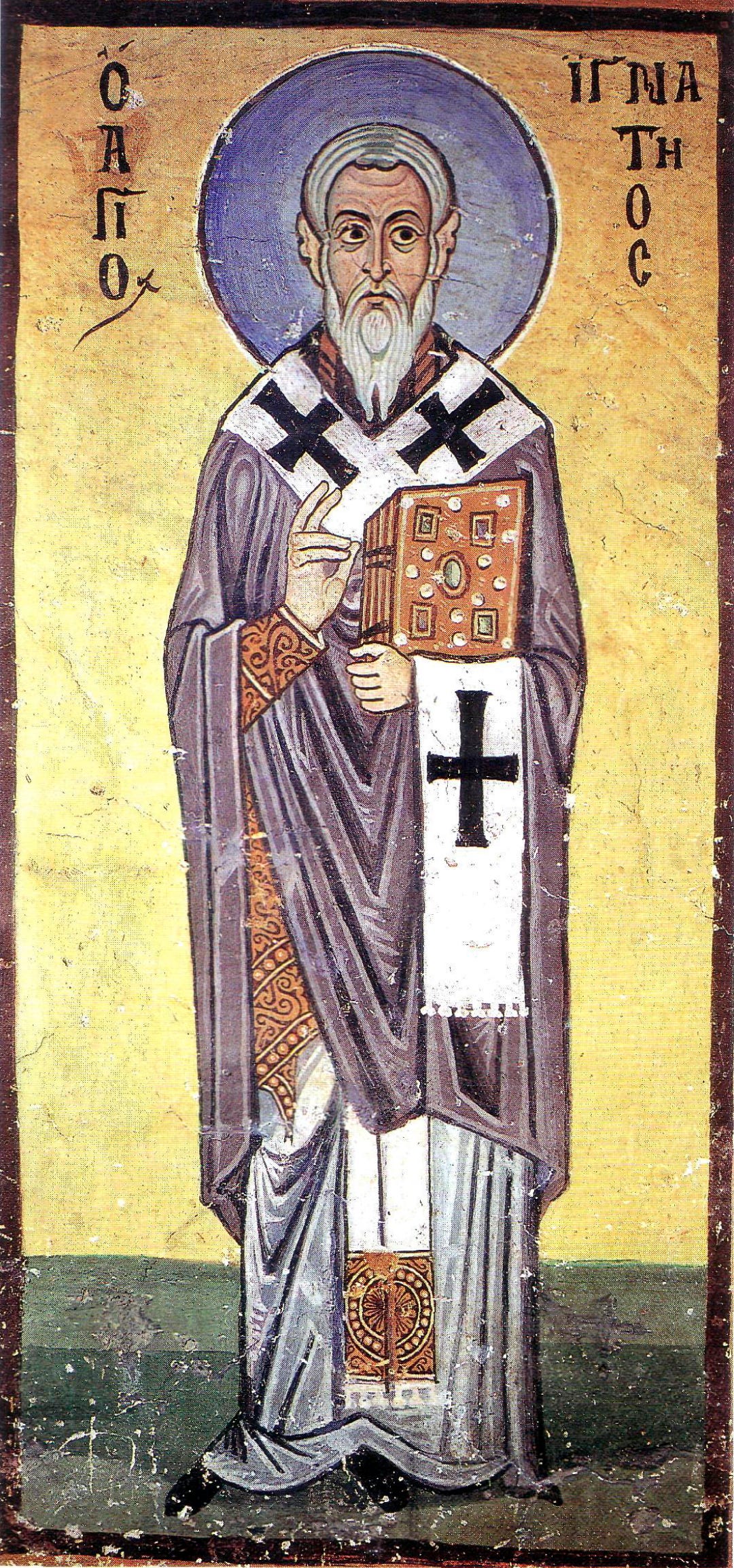On Reading Ignatius
Over the summer, I have been wading into the works of the Church Fathers. It’s been a paradigm shifting experience — and the more I have learned, the more I feel ignorant.
I read the Epistles of St. Ignatius of Antioch first. I started with a cheap kindle translation, then purchased a copy of Early Christian Writings, translated by Maxwell Staniforth (an Anglican). Ignatius was a disciple of the Apostle John — making his writings just one generation away from scripture. His letters are wonderful, written very much in the same style as the epistles in the New Testament. I know I will revisit them in years to come.
Ignatius writes his letters near the beginning of the second century, when he is on his way to martyrdom at the hand of Emperor Trajan in Rome. Following the Apostolic tradition, despite his earthy trials, his concern is for the well-being of the Church.
For me, the most surprising element of Ignatius theology is the way he talks about church government. As a lifelong Evangelical Protestant, I was always told that the early church was very informal and decentralized. People met in homes. There were no official pastors — just elder folks who acted as shepherds (the meaning of the word bishop), of which each church had a plurality.
Reading Ignatius quickly dispelled me of this misunderstanding. He repeatedly refers to the bishops, presbyters, and deacons. It is clear that by the time of his writing, the Christian church is organized and centralized. Each city has one bishop, and under him are both presbyters and then deacons. These bishops are in communication — and communion — with one another. It was incumbent on lay Christians to obey these church leaders. To think or act independently, to Ignatius, is to lean toward the schismatic.
In his epistle to the Magnesians, Ignatius writes:
Allow nothing whatever to exist among you that could give rise to any divisions; maintain absolute unity with your bishop and leaders, as an example to others and a lesson in the avoidance of corruption. In the same way as the Lord was wholly one with the Father and never acted independently of Him, either in person or through the Apostles, so you yourselves must never act independently of your bishop and clergy. On no account persuade yourselves that it is right and proper to follow your own private judgement; have a single service of prayer which everybody attends; one united supplication, one mind, one hope, in love and innocent joyfulness, which is Jesus Christ, than whom nothing is better. (Staniforth, 6-7)
And similarly, to the Church at Philadelphia, Ignatius writes:
Every man who belongs to God and Jesus Christ stands by his bishop. As for the rest, if they repent and come back into unity of the church, they too shall belong to God, and so bring their lives into conformity with Jesus Christ. But make no mistake, my brothers; the adherents of a schismatic can never inherit the kingdom of God. Those who wander in outlandish by-ways of doctrine must forfeit all part in the Lord’s Passion. Make certain, therefore, that you all observe one common Eucharist; for there is but one Body of our Lord Jesus Christ, and but one cup of union with His Blood, and one single alter of sacrifice — even as also there is but one bishop, and his clergy and my own fellow servitors the deacons. This will ensure that all your doings are in full accord with the will of God. (Staniforth, 3-4)
These two passages are only a small sampling of Ignatius’ emphasis on unity through submission to Church leadership. It is clear from his writing that he sees the seeds of division being sown throughout Christianity. The typical Evangelical Protestant response would be to tell people to study for themselves and choose what they think the best version of truth. Ignatius encourages nothing of the kind, however. Over and over, he urges Christians to follow their church leaders, implying a belief in the authority of those divine offices established by Christ himself and developed in the book of Acts.
Ignatius, though one man, isn’t alone in his opinion. I’ve read passages from St. Clement of Rome and St. Irenaeus of Lyons that display similar convictions. It is clear that these earliest Christians taught the authority of bishops as well as apostolic succession — that this authority was given to the Apostles by Christ and passed on to their successors. This is a very different style of church government from we find in Protestantism, where anyone can decide to become a pastor and start their own church based on whatever version of Christianity they personally find most compelling.
Reading Ignatius, there were times I had to just stop and shake my head. I would underline a passage only to immediately go and read it to a family member, telling them, “Just listen to this.” I don’t understand how these books aren’t standard reading for all Christians — especially Christians who study their faith at Christian institutions of higher learning. I took a year of seminary classes. My sisters both have degrees in Biblical studies, and my brother has a minor in the topic. Aside from little snippets in Church history textbooks, none of us was ever required to read the original writings of these earliest Christians.
A more comprehensive look at apostolic succession is a topic for another post. For now — I’m thankful to finally being listening to the Church Fathers. I’ve intended to read them for years, but life has been busy, and I have kept putting it off. To me, how the earliest Christians interpreted the teachings of the Apostles as well as scripture should have a lasting impact on our theology as Christians. I want to know what they have to say.

